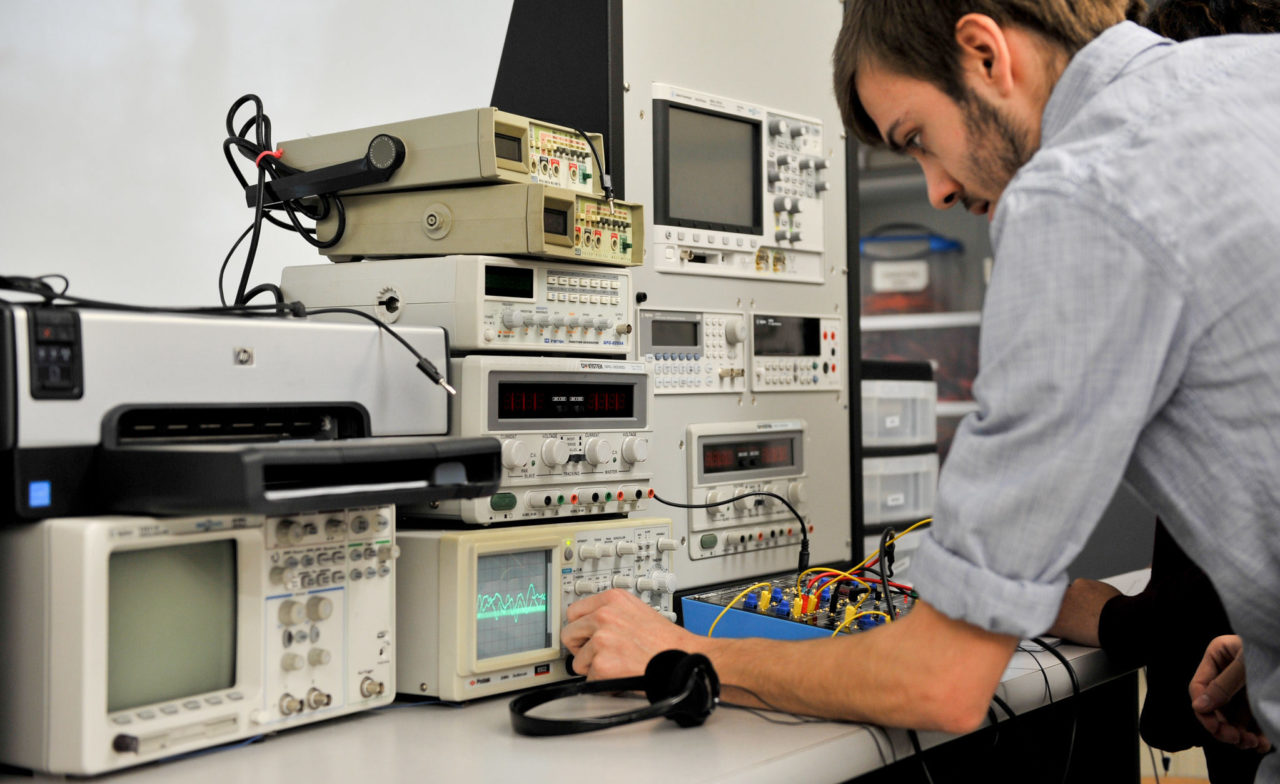Electrical Engineering Minor

(for non-electrical engineering majors)
The minor in Electrical Engineering consists of 15 credits and is relevant to students with appropriate mathematics and science backgrounds. This minor provides students with a foundation in electrical engineering, and it can bring them additional employment opportunities and career options.
Required Courses (15 credits)
- EENG2221 Signals and Systems I
- EENG2222 Signals and Systems II
- ENGR2286 Digital System Design
- EENG2287 Microprocessor System Design I
- EENG3265 Electronics I
To take any course in the minor, a student must meet all the prerequisites for that course.